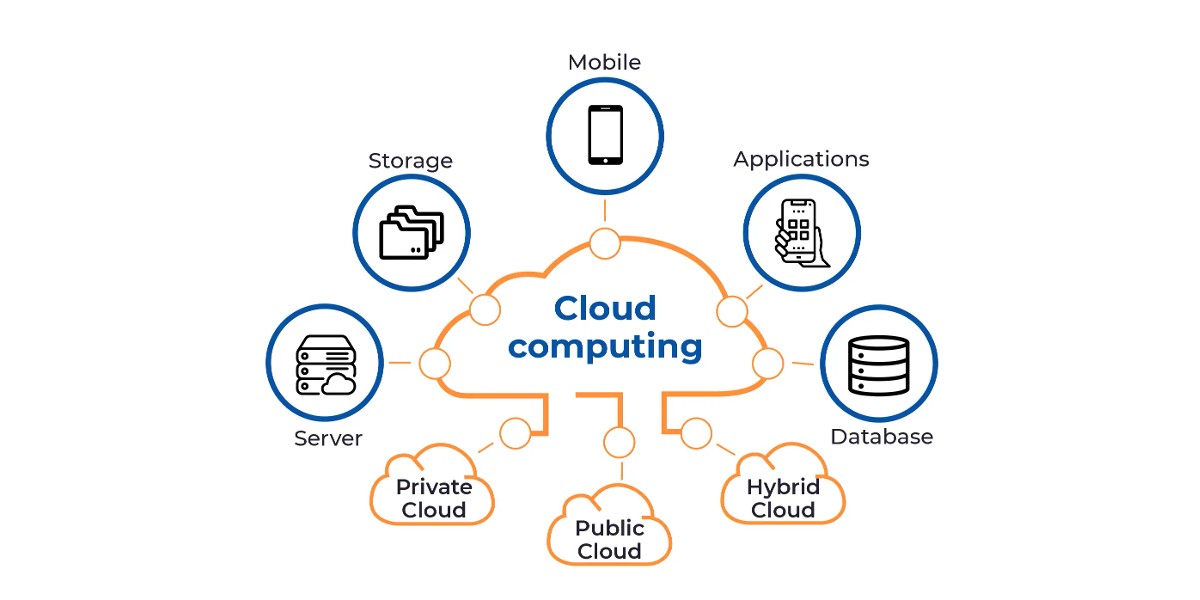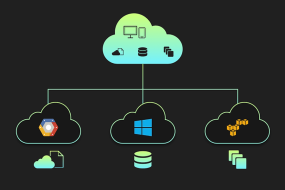
In the rapidly evolving world of technology, cloud hosting has emerged as a powerful solution for businesses of all sizes. As organizations strive to optimize their operations and data management, cloud hosting offers flexibility, scalability, and cost-effectiveness. However, not all cloud hosting solutions are created equal. In this comprehensive guide, we will explore the different types of cloud hosting: public, private, and hybrid clouds. By understanding the unique features and benefits of each type, you will be equipped to make an informed decision for your business.
Public Cloud Hosting
Definition and Features
The public cloud is a cloud computing model where services and infrastructure are provided by third-party vendors over the internet. It offers a shared environment, meaning that multiple organizations and users can access the same resources simultaneously. Public cloud hosting provides a high level of scalability, allowing businesses to scale their resources up or down based on demand. It also eliminates the need for upfront hardware investments and reduces maintenance costs.
Benefits and Use Cases
Public cloud hosting offers several benefits that make it an attractive choice for businesses. Firstly, it provides easy and instant access to a wide range of services, including computing power, storage, and applications. This enables businesses to rapidly deploy new projects and services without the need for significant capital investments. Additionally, the pay-as-you-go pricing model allows organizations to only pay for the resources they actually use, resulting in cost savings.
Public cloud hosting is well-suited for startups and small businesses with limited budgets and resources. It provides them with the ability to leverage enterprise-level infrastructure without the associated costs. Similarly, organizations with fluctuating resource demands, such as seasonal businesses or those experiencing rapid growth, can benefit from the scalability and flexibility offered by the public cloud.
Private Cloud Hosting
Definition and Features
Private cloud hosting, as the name suggests, is a cloud computing model that is dedicated to a single organization. Unlike the public cloud, the infrastructure and resources in a private cloud are not shared with other users. This offers enhanced security, control, and customization options. Private cloud hosting can be implemented on-premises, where the organization owns and manages the infrastructure, or it can be hosted by a third-party provider.
Benefits and Use Cases
One of the primary advantages of private cloud hosting is the increased level of control and security it provides. Since the infrastructure is dedicated to a single organization, it offers better data privacy and compliance with industry regulations. This makes private cloud hosting a preferred choice for businesses that handle sensitive data or operate in highly regulated industries, such as healthcare and finance.
Furthermore, private cloud hosting allows organizations to customize the infrastructure and tailor it to their specific needs. This level of flexibility is particularly beneficial for businesses with unique requirements, such as those running mission-critical applications or dealing with high volumes of traffic. By having complete control over the environment, organizations can optimize performance and ensure the availability of their applications and services.
Hybrid Cloud Hosting
Definition and Features
Hybrid cloud hosting combines elements of both public and private clouds, creating a unified infrastructure that offers the benefits of both models. In a hybrid cloud setup, organizations can leverage the scalability and cost-effectiveness of the public cloud while maintaining control over sensitive data and critical applications in a private cloud. The two environments are connected, allowing seamless data and application integration.
Benefits and Use Cases
Hybrid cloud hosting offers organizations the best of both worlds. It provides the flexibility to leverage the advantages of the public cloud for non-sensitive workloads and applications, while also ensuring the security and control of the private cloud for critical data and applications. This hybrid approach allows businesses to optimize their costs, allocate resources effectively, and maintain a balance between security and scalability.
Organizations with variable workloads can benefit greatly from hybrid cloud hosting. For example, an e-commerce business can use the public cloud to handle peak shopping seasons while relying on the private cloud for secure transactions and customer data management. Similarly, businesses that are bound by regulatory requirements can utilize the private cloud for compliance-related workloads, while leveraging the public cloud for non-sensitive tasks.
FAQs
1. Can I switch between different types of cloud hosting?
Yes, businesses have the flexibility to switch between different types of cloud hosting based on their evolving needs. For example, a small business that starts with public cloud hosting can later transition to a hybrid cloud setup to incorporate additional security measures or control over critical data.
2. What are the security implications of public cloud hosting?
Public cloud hosting providers implement robust security measures to protect their infrastructure and customer data. However, businesses must also take precautions to ensure the security of their applications and data within the cloud. This includes implementing strong access controls, data encryption, and regular security audits.
3. Is hybrid cloud hosting more expensive than public or private cloud hosting?
The cost of hybrid cloud hosting depends on various factors, including the specific resources and services utilized. While there may be additional costs associated with managing multiple environments, businesses can optimize their costs by strategically allocating workloads to the most appropriate cloud type based on their requirements.
4. How can I determine the right type of cloud hosting for my business?
Choosing the right type of cloud hosting requires a thorough understanding of your business needs, regulatory requirements, and future scalability plans. It is recommended to consult with cloud hosting experts who can assess your specific requirements and provide tailored recommendations.
5. Can I migrate my existing applications to the cloud?
Yes, most applications can be migrated to the cloud with proper planning and execution. However, the migration process may vary depending on factors such as the complexity of the application, data volume, and integration requirements. It is advisable to engage with experienced cloud migration specialists to ensure a smooth and successful migration.
Conclusion
Cloud hosting has revolutionized the way businesses manage their IT infrastructure and applications. By understanding the different types of cloud hosting—public, private, and hybrid clouds—you can make an informed decision that aligns with your business goals and requirements. Whether you prioritize scalability, security, cost-effectiveness, or a combination of factors, there is a cloud hosting solution that can meet your needs. Consult with cloud hosting experts to ensure a seamless transition to the cloud and unlock the full potential of this transformative technology
Advertisement







